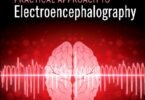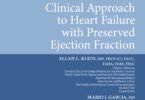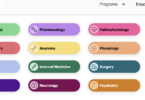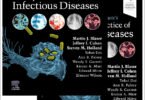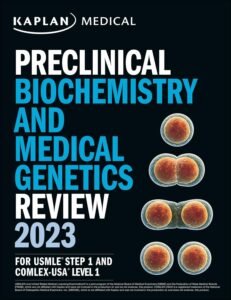
The “Preclinical Biochemistry and Medical Genetics Review 2023: For USMLE Step 1 and COMLEX-USA Level 1 (USMLE Prep)” is a comprehensive and meticulously crafted resource tailored to the needs of medical students preparing for the rigorous USMLE Step 1 and COMLEX-USA Level 1 examinations. This cutting-edge review book encapsulates the latest advancements in biochemistry and medical genetics, ensuring that students are equipped with the most up-to-date and relevant knowledge for these critical licensing exams. Key features of this indispensable resource include:
Up-to-Date Content: With a keen focus on the most current developments in biochemistry and medical genetics, this review book ensures that students are well-prepared to tackle questions on the latest trends and research findings in the field.
Comprehensive Coverage: The book offers comprehensive coverage of essential biochemistry and medical genetics topics, providing a holistic understanding of the subject matter and equipping students with the knowledge needed to excel on their exams.
Clinical Relevance: Recognizing the importance of clinical application, the book bridges the gap between foundational science and clinical practice, helping students understand how biochemistry and genetics concepts relate to real-world patient care.
Practice Questions: The book includes a wealth of practice questions and sample exams designed to mimic the format and difficulty level of the actual USMLE Step 1 and COMLEX-USA Level 1 exams, allowing students to assess their knowledge and test-taking skills.
Visual Aids: Richly illustrated with diagrams, charts, and tables, the book enhances comprehension and retention of complex concepts, making it accessible to a wide range of learning styles.
Study Aids: In addition to the text, the book provides study aids such as mnemonics, key concept summaries, and clinical correlations, aiding in efficient review and retention of critical information.
Expert Authorship: Authored by experts in the field of biochemistry and medical genetics, the book reflects a deep understanding of the subject matter and a commitment to helping students succeed in their licensing exams.
In conclusion, the “Preclinical Biochemistry and Medical Genetics Review 2023” is an indispensable tool for medical students embarking on their journey to becoming licensed physicians. With its contemporary content, comprehensive coverage, and practical study aids, it empowers students to master the intricacies of biochemistry and medical genetics and excel on their USMLE Step 1 and COMLEX-USA Level 1 exams.
Biochemistry and medical genetics lay the foundation for understanding the intricate workings of the human body and the basis for numerous diseases. The “Kaplan Preclinical Biochemistry and Medical Genetics Review 2023” is a comprehensive resource designed to help medical students and professionals master these fundamental subjects. In this review, we will delve into the key aspects of this book, including its structured approach, extensive coverage, and the invaluable support it provides for biochemistry and medical genetics learners.
1: The Significance of Biochemistry and Medical Genetics
Biochemistry and medical genetics are pivotal subjects in medical education. Biochemistry elucidates the biochemical processes that underlie human physiology, while medical genetics unravels the genetic basis of diseases. A strong grasp of these subjects is indispensable for medical students and healthcare professionals.
References:
- Berg, J. M., Tymoczko, J. L., & Stryer, L. (2002). Biochemistry (5th ed.). WH Freeman.
- Nussbaum, R. L., McInnes, R. R., & Willard, H. F. (2015). Thompson & Thompson Genetics in Medicine (8th ed.). Elsevier.
2: Comprehensive Coverage of Biochemical Concepts
The book offers a comprehensive exploration of biochemistry, beginning with the basics of biomolecules, enzymology, and metabolic pathways. It then delves into advanced topics, such as molecular biology and signal transduction, providing readers with a strong foundation in biochemistry.
3: Understanding the Principles of Medical Genetics
Medical genetics is demystified through the book’s coverage of the principles of genetics, inheritance patterns, and chromosomal disorders. It also delves into the molecular mechanisms underlying genetic diseases, enabling readers to understand the genetic basis of various disorders.
Question 1 (Biochemistry):
In glycolysis, which enzyme catalyzes the conversion of glucose-6-phosphate to fructose-6-phosphate?
A) Phosphofructokinase-1 (PFK-1) B) Hexokinase C) Glucokinase D) Phosphoglucose isomerase
4: Integration of Clinical Correlations
A notable feature of the book is its emphasis on clinical correlations. It bridges the gap between basic science and clinical practice by illustrating how biochemistry and genetics concepts are applied in real-world medical scenarios. This integration enhances the relevance of the subject matter.
5: Genetic Disorders and Their Molecular Basis
The book offers an in-depth exploration of genetic disorders, covering a wide array of conditions, from single-gene disorders to complex multifactorial diseases. It elucidates the molecular basis of these disorders, helping readers appreciate the underlying mechanisms.
Question 2 (Medical Genetics):
A newborn presents with lethargy, hypotonia, and a “musty” odor. Laboratory tests reveal elevated phenylalanine levels. What is the most likely diagnosis, and what enzyme is deficient in this condition?
A) Phenylketonuria (PKU); Phenylalanine hydroxylase B) Alkaptonuria; Homogentisate oxidase C) Maple syrup urine disease (MSUD); Branched-chain alpha-keto acid dehydrogenase D) Albinism; Tyrosinase
6: High-Yield Review and Practice Questions
To facilitate effective learning and retention, the book incorporates high-yield review sections at the end of each chapter. These summaries highlight key concepts and serve as excellent revision tools. Additionally, practice questions throughout the book reinforce understanding and allow readers to assess their knowledge.
7: Mastery through Clinical Vignettes
Clinical vignettes are interspersed throughout the book, challenging readers to apply their knowledge to clinical scenarios. These vignettes sharpen diagnostic and problem-solving skills, preparing readers for the clinical aspects of biochemistry and medical genetics.
Question 3 (Clinical Vignette):
A 28-year-old female presents with muscle weakness, a rash on her face, and joint pain. She reports photosensitivity and fatigue. Laboratory tests reveal elevated levels of anti-double-stranded DNA antibodies and a positive antinuclear antibody (ANA) test. What is the most likely diagnosis?
A) Sjögren’s syndrome B) Systemic lupus erythematosus (SLE) C) Rheumatoid arthritis D) Scleroderma (systemic sclerosis)
8: Support for USMLE and Medical Board Examinations
The book serves as a valuable resource for medical students preparing for licensing examinations like the USMLE (United States Medical Licensing Examination) and various medical board exams. Its high-yield content aligns with the knowledge required for success in these assessments.
Conclusion: A Gateway to Excellence in Biochemistry and Medical Genetics
In conclusion, the “Kaplan Preclinical Biochemistry and Medical Genetics Review 2023” is an indispensable companion for anyone seeking to master the foundational subjects of biochemistry and medical genetics. Its structured approach, comprehensive coverage, clinical correlations, and practice questions make it an invaluable resource for medical students and healthcare professionals. With this book as a guide, readers are equipped to navigate the complexities of biochemistry and medical genetics with confidence, ensuring a strong foundation for their medical



